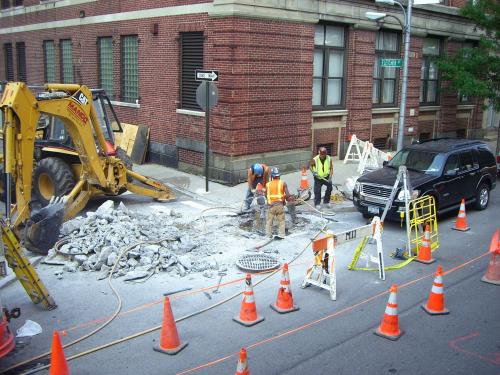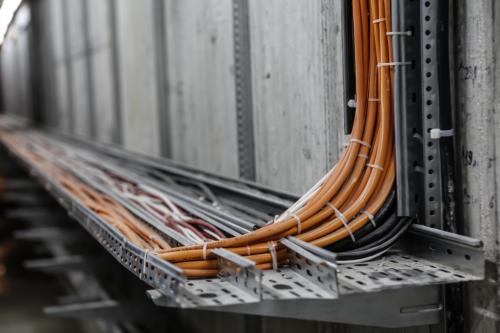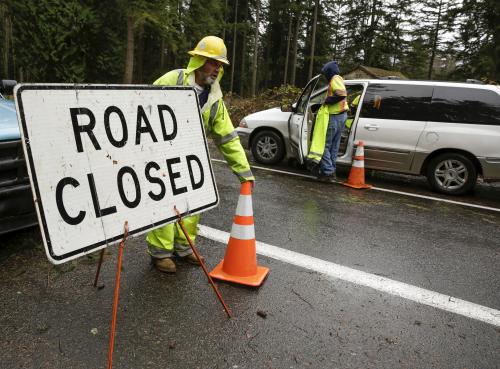If the nation were to start from scratch on our infrastructure priorities, what would that look like?
That was the question Brookings Metro fellow Adie Tomer posed to the House Committee on the Budget on Wednesday, September 25 during a hearing on the country’s infrastructure needs and opportunities.
Tomer’s testimony examined the gulf between the issues that U.S. infrastructure has historically focused on and the modern-day objectives that should now be the priority.
“Consider what motivated the federal policy frameworks we follow today,” said Tomer. “Their authors crafted policies that responded to the challenges of their time—issues like connecting cities across state lines, delivering telephone and cable service, and stopping sewage dumping.” The nation’s continued focus on these “legacy frameworks” prevents us from tackling the challenges of today and inviting a much-needed re-evaluation of our infrastructure objectives.
Tomer cites four big national issues that a newfound infrastructure policy could help correct—climate change, wealth inequality, industrial competitiveness, and regional economic divergence. And that correction, Tomer notes, will not be accomplished through the default and oversimplified method of our infrastructure policy to date—spending more. Instead, it will come from smart policy and a critical re-examination of the role infrastructure reform can play in wider national issues.
Take climate change, for instance: in his written testimony, Tomer writes that prioritizing density in our land use will mitigate the impacts of development and transportation emissions on our environment. He proposes, among other policies, a National Land Value Tax and Impact Fee to incentivize resilient growth and affordable, environmentally sound housing and transportation options.
Even seemingly unrelated economic issues can be addressed through a more holistic approach to infrastructure policy. Many U.S. households spend huge portions of their income on housing, transportation, and other infrastructure-adjacent expenses such as broadband access. We could confront the nation’s precarious income and wealth inequality by way of decreasing these expenses, through programs Tomer proposes such as a new benefits system for infrastructure needs and dynamic transportation pricing. The widening economic divergence between different regions of the country, recently examined in a blog post by Brookings’s Mark Muro and Jacob Whiton, could also be treated via a re-evaluation of our infrastructure priorities.
“Congress and your partners in the general public have a truly special opportunity,” Tomer told the committee. But the apparent political consensus on accomplishing big infrastructure reform shouldn’t be squandered on the same obsolete objectives, he concluded: “This all starts with a fresh perspective.”
The Brookings Institution is committed to quality, independence, and impact.
We are supported by a diverse array of funders. In line with our values and policies, each Brookings publication represents the sole views of its author(s).







Commentary
TestimonyA new framework for infrastructure reform
September 30, 2019